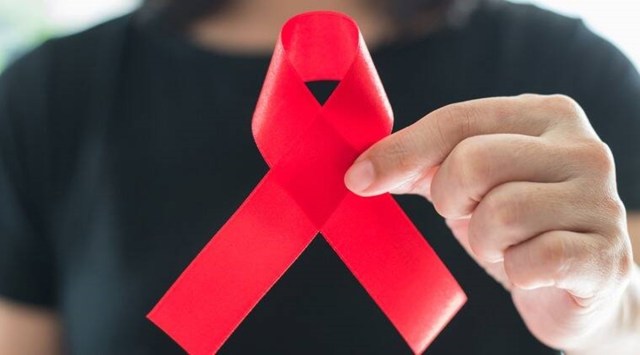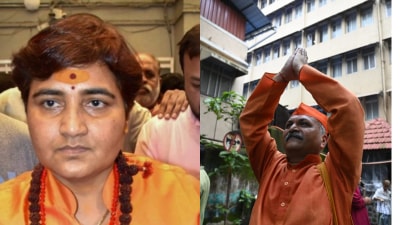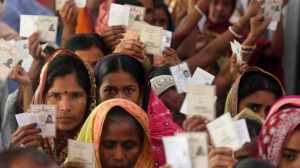NFHS-5: One-fifth of women, nearly one-third of men comprehensively know about HIV/AIDS
The National Family Health Survey-5 (2019-21) report indicated that the knowledge that consistently using condoms and limiting sexual intercourse to one uninfected partner can prevent HIV/AIDS has also increased.
 Among youths, around 20% of young women and 29% of young men (15-24) have a comprehensive knowledge of HIV. (Representational image)
Among youths, around 20% of young women and 29% of young men (15-24) have a comprehensive knowledge of HIV. (Representational image)One-fifth (22%) of women and nearly one-third of men (31%) in the 15-49 age group in India have comprehensive knowledge of HIV/AIDS according to the National Family Health Survey-5 (2019-21) report.
Among youths, around 20% of young women and 29% of young men (15-24) have a comprehensive knowledge of HIV. Since NFHS-4, knowledge of HIV/AIDS has increased more among women than men. For women, knowledge increased by 12 percentage points from 76% in NFHS-4, and for men, it increased by 5 percentage points from 89% in NFHS-4.
As many as 54% of women and 64% of men know that HIV/AIDS cannot be transmitted by mosquito bites; 45% of women and 59% of men know that HIV/AIDS cannot be spread by sharing food with a person who has AIDS; and two-thirds of women (67%) and 71% of men know that a healthy-looking person can have HIV/AIDS, the report indicated.
Similarly, the knowledge that consistently using condoms and limiting sexual intercourse to one uninfected partner, who has no other partners, can prevent HIV/AIDS has also increased, and this increase is greater for women (from 47% in NFHS-4 to 60%), than for men (from 69% in NFHS-4 to 71%), it said.
Started in 1992, India’s National AIDS Control Programme (NACP) has taken a comprehensive approach to the prevention and control of HIV/AIDS in India. Currently in its fourth round, key priorities of the programme now include the prevention of new infections, provision of comprehensive care, support, and treatment for persons living with HIV, prevention of parent-to-child transmission, raising awareness, reducing stigma and discrimination; and demanding generation of HIV services, particularly for women and youth.
The percentage of women and men who have comprehensive knowledge of HIV/AIDS varies greatly from state to state. For women, comprehensive knowledge is highest in Mizoram (64%) and lowest in Bihar, Arunachal Pradesh and Uttar Pradesh (10-13%). For men, comprehensive knowledge is highest in Goa (67%) and lowest in West Bengal and Meghalaya (16% each). Comprehensive knowledge is higher in urban areas than in rural areas, the report pointed out.
Meanwhile, there has been a substantial increase in HIV testing among women (5-49) since NFHS-4. The proportion who had ever been tested for HIV prior to the survey increased from 16% in NFHS-4 to 21% in NFHS-5 among women and from 8% to 9% among men.
Higher-risk sexual intercourse
Having multiple sexual partners or having sex with a person who is neither a spouse nor a live-in partner can put women and men at higher risk of HIV/AIDS. The NFHS-5 report also noted higher-risk sex among youth. Around 39% of men aged 15-24 who had sexual intercourse in the last 12 months had higher-risk intercourse (sex with a non-marital, non-cohabitating partner) in the 12 months preceding the survey, compared with 2% of women aged 15-24.
Among women and men who had higher-risk sexual intercourse in the past 12 months, 57% of women and 60% of men reported use of a condom at the last higher-risk sex. On average, women who have ever had sex have had 1.7 sexual partners in their lifetime and men who have ever had sex have had 2.1 sexual partners in their lifetime.
Women and men who had sex in the past 12 months and were away from home for one month or more at a time in the past 12 months are more likely to have multiple partners than those who have not been away from home for one or more months (0.8% versus 0.3% for women; 2.6% versus 1% for men).













